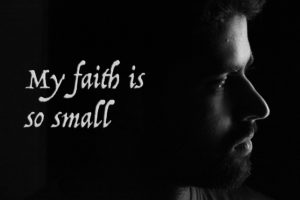“I, even I, am He who comforts you. Who are you that you should be afraid of a man who will die, and of the son of a man who will be made like grass? 13 And you forget the Lord your Maker, who stretched out the heavens and laid the foundations of the earth; you have feared continually every day because of the fury of the oppressor, when he has prepared to destroy. And where is the fury of the oppressor?” (Isaiah 51:12,13)
Time and again, the Scriptures exhort us to not fear the threats of the destroyer, and this divine injunction is always addressed to those with whom God dwells:
Fear not, for I am with you; be not dismayed, for I am your God. I will strengthen you, yes, I will help you, I will uphold you with My righteous right hand.’” (Isaiah 41:10)
Then I said to you, ‘Do not be terrified, or afraid of them. The Lord your God, who goes before you, He will fight for you… (Deut.1:29)
Be strong and of good courage, do not fear nor be afraid of them; for the Lord your God, He is the One who goes with you. He will not leave you nor forsake you.” (Deut. 31:6)
Now it would seem that these sorts of verses should embolden us when faced with oppressors and tyrannizers. For after all, “If God is for us, who can be against us?” (Rom. 8:31). Yet, at times, the threatening appearances seem so real that they implant dread and anxiety within our heart, and this, at the point of crippling our progress.
A revealing question
I presume most of us are aware that there are questions more exposing than others. Among these belong the questions God asks, and you can be sure He doesn’t ask them to embarrass us but rather to ignite some deep considerations, for questions provoke thoughts, and the importance of truthful thinking cannot be overemphasized.
As a trigger for reflection, let me bring up-front one of God’s questions apt to stimulate tectonic cogitations:
Who are you that you should be afraid of a man who will die, and of the son of a man who will be made like grass?” (Isaiah 51:12)
Here God is addressing the question to those who know righteousness and in whose heart His law abides (Isaiah 51:7). And he confronts them with that query in view to lead them to a veracious conclusion, for He knew their fear was rooted in a lack of knowledge of who they were, and in the oblivion of who God is: “And you forget the Lord your Maker, who stretched out the heavens and laid the foundations of the earth” (Isaiah 51:13).
As a matter of fact, the people referred to in this verse didn’t only fear, they feared continually, and this, every day:
You have feared continually every day because of the fury of the oppressor, when he has prepared to destroy. And where is the fury of the oppressor?” (Isaiah 51:13)
So here you have the people of God fearing unceasingly, and they were thus fearing because they foresaw the fury of the oppressor when he has prepared to destroy. But the crazy thing is that the fury of the oppressor was, in actuality, nowhere to be seen. That’s precisely what God brought to their attention when He asked them: “And where is the fury of the oppressor?” Simply put, their dread and dismay was grounded in what was not truly the case. I write about it because I have experienced this sort of dread in the first person. It is actually easy to fall in that sort of unjustified fear. All what is needed is to forget who we are and who God is, and before we know it the phantom of the oppressor is upon us to intimidate and cripple our progress. No wonder David prayed, asking God to preserve his life from fear of the enemy (Psalm 64:1).
A divine promise
Happily for us, God, knowing our frame, has spoken and still speaks words of comfort to His people. Here is one of these amazing scripture:
In righteousness you shall be established; you shall be far from oppression, for you shall not fear; and from terror, for it shall not come near you. (Isaiah 54:14)
Here we are told that there is a way to remain far from oppression and terror, and the way is: To not fear. This is precisely what the omniscient God says in the verse above. Fearlessness is here described as an efficient shield. It has the power to disembowel the intimidating effect of the tyrannizer. But obviously this fearlessness must be established on factuality. It must be rooted in actualities such as: God is with me; He will defend and protect me; He is truly my Shield and my exceeding great reward. If these claims are mere pretences we will do well to fear, but if they are established on veracity they have the power to generate victory and heavenly rest.
At the light of what has been said, let us read again our opening text:
I, even I, am He who comforts you. Who are you that you should be afraid of a man who will die, and of the son of a man who will be made like grass? 13 And you forget the Lord your Maker, who stretched out the heavens and laid the foundations of the earth; you have feared continually every day because of the fury of the oppressor, when he has prepared to destroy. And where is the fury of the oppressor?” (Isaiah 51:12,13)
Here the people were fearing what was not coming. The fury of the oppressor was simply not there and nowhere to be seen.
Brethren! Let’s take hold of God’s promise when He says: “My people will dwell in a peaceful habitation, in secure dwellings, and in quiet resting places” (32:18).
A pertinent question
But what if persecution comes and puts our lives in danger? Well, nothing will really change. Jesus puts it in these words: “And I say to you, My friends, do not be afraid of those who kill the body, and after that have no more that they can do.” (Luke 12:4) It is precisely this impotence that renders the fury of the oppressor undisturbing, at least for the one who knows who he is and who God is.
If you think this post can help somebody you can share it with the options presented bellow.













